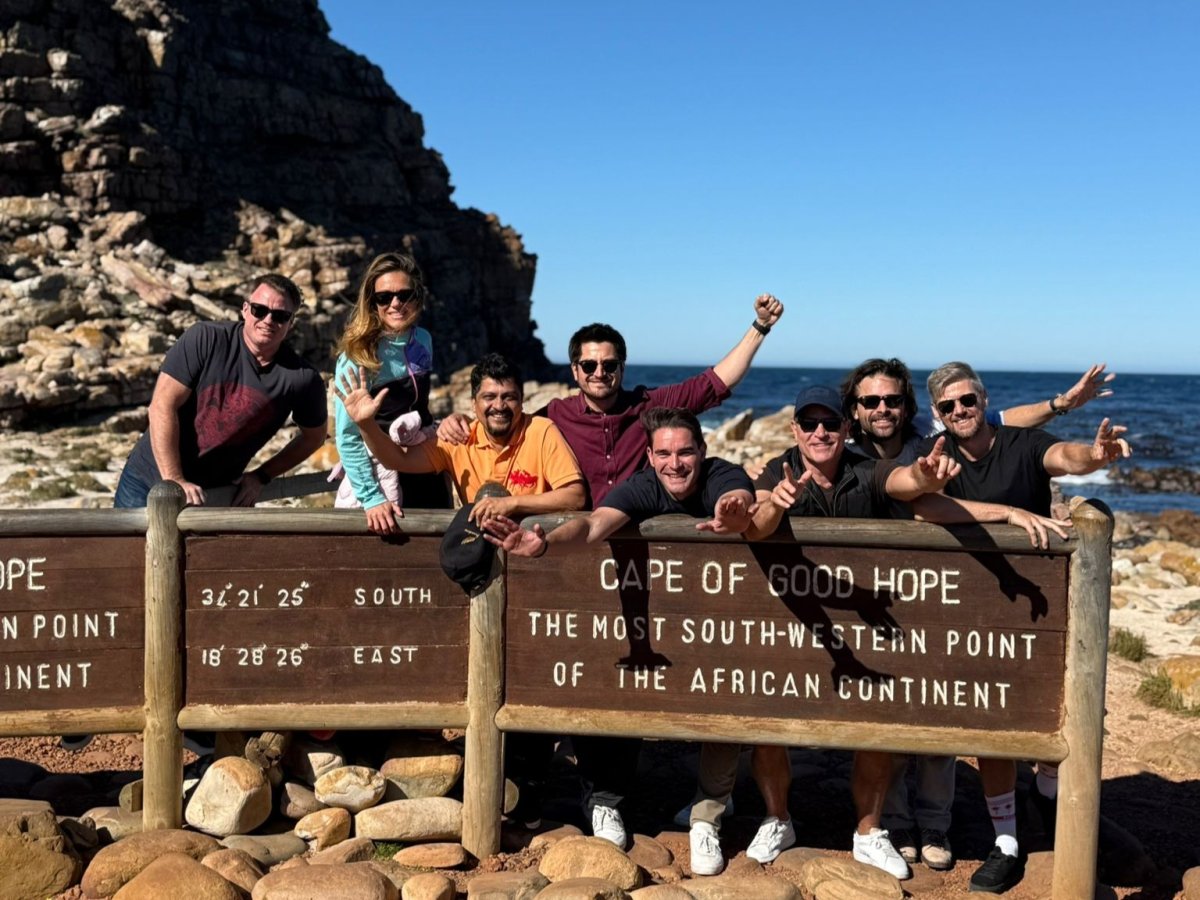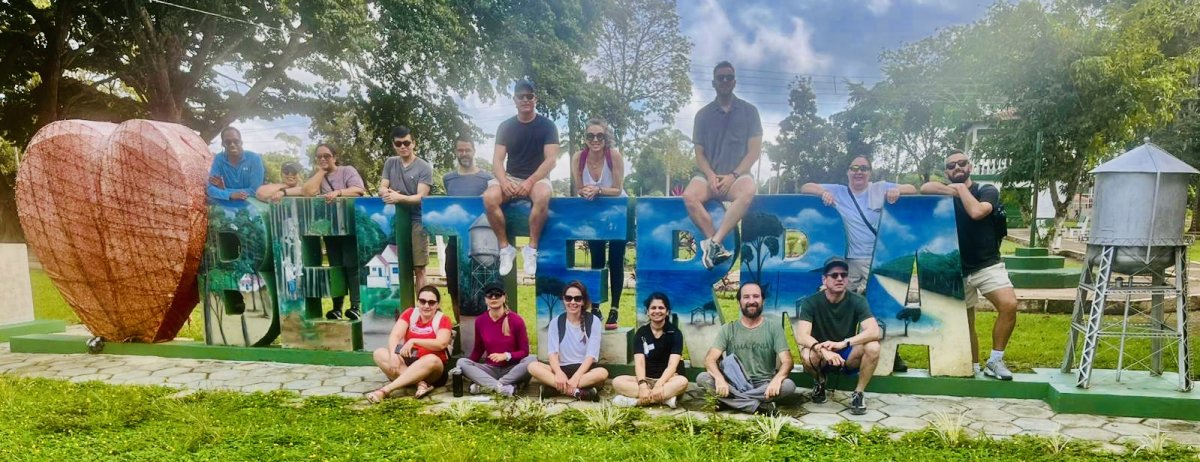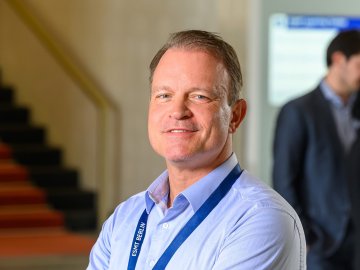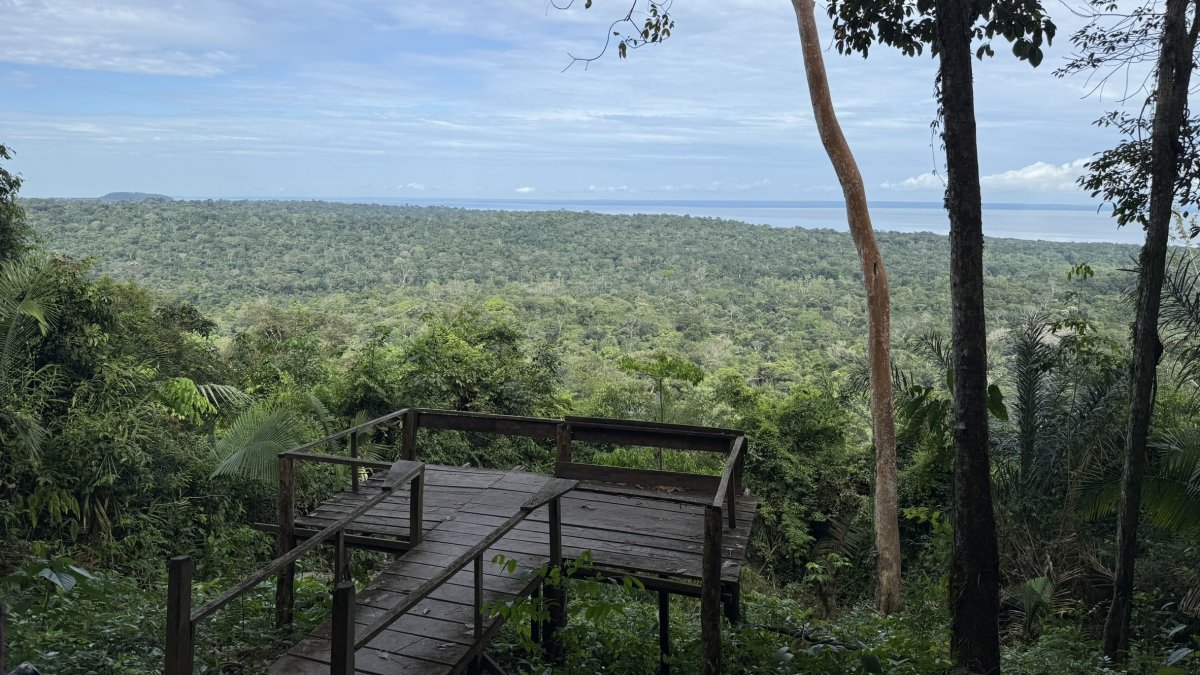Global exposure, personal growth: My EMBA in Brazil & South Africa

Over the past months, I have had the privilege of joining two international modules of my Executive MBA at ESMT Berlin:
- Brazil, with a focus on environmental sustainability
- South Africa, with a focus on social sustainability
Both experiences were intense, eye-opening, and deeply personal. They reshaped how I see the world, and more importantly, how I see my responsibility as a leader.
The Amazon: A global treasure under threat
A fascinating view of an endless, untouched forest in the Amazon
Standing in the Amazon rainforest was awe-inspiring. You can feel how vital it is—not only to Brazil, but to the entire planet. It is often called "the lungs of the Earth", regulating global climate patterns and absorbing enormous amounts of carbon dioxide. Yet, as I learned, this treasure is disappearing at an alarming pace.
Cattle ranching and soy production drive large-scale deforestation, while illegal logging continues in remote areas. In conversations with local experts, the systemic problems were laid bare: economic incentives that reward short-term gains, weak enforcement of environmental protections, and the constant pressure of global demand.
Guardians of the rainforest: Indigenous communities
One of the most impactful insights was the role of Indigenous communities in protecting the rainforest. They live in and with the forest. They are its natural stewards—and, as I learned, they are often the first line of defense against illegal deforestation.
The Jaramaquá community offers tourists breathtaking tours through the rainforest – a way to make a living and to guard against deforestation.
With the help of new technologies, such as Starlink internet, communities can now directly alert the military when loggers or miners encroach on their lands. But this is not a sustainable solution in itself. For these guardians to continue their essential role, they also need livelihoods that allow them to put food on the table and send their children to school. Without economic opportunities, they face the same pressures that drive others to exploit the forest.
This paradox stayed with me: saving the rainforest is not only about laws and enforcement—it is about empowering the very people who live within it.
South Africa: Beauty and inequality side by side
South Africa was a study in contrasts. It is a country of stunning natural beauty, vibrant culture, and resilient communities. Yet it also bears the deep scars of apartheid: structural inequality, poverty, and limited access to opportunity for many.
Township of Langa – poverty on the outside, but relentless hope for a better life on the inside
During our visit to a township outside Cape Town, I was struck by the positivity and determination of the people we met. Despite challenging conditions, they radiated optimism and an entrepreneurial spirit. Families spoke about taking fate into their own hands—working hard to put food on the table and striving to send their children to school.
This was not a story of despair. It was a story of agency. Of people refusing to be defined by systemic barriers and instead, building hope and opportunity where little seems to exist.
Confronting complexity as a leader
Table mountain – the hallmark of Capetown
Both journeys reminded me that sustainability is never one-dimensional. Environmental and social issues are intertwined, systemic, and deeply human. It is tempting to point to governments and corporations and say:
- Stronger laws are needed
- Corporations must take responsibility
- Better policies must be implemented
All of these are true. But if all I bring back from Brazil and South Africa is the hope that others will act, then the CO₂ footprint of my travels won’t have been worth it.
The real challenge is personal: what role will I play? How will I translate awareness into action?
Personal commitments
Change starts with responsibility, and responsibility begins with small, meaningful choices. Inspired by these journeys, I have committed to:
- Becoming a vegetarian: not just rethinking my diet but making a decisive change. One reason is that much of the soy produced in Brazil—linked to deforestation—is exported to feed animals in Europe. By reducing demand for meat, I want to make at least a small difference.
- Supporting Indigenous communities: for example, through eco-tourism to Santarém or by choosing brands that create sustainable livelihoods (for example www.naturabrasil.fr) .
- Learning beyond the headlines: exploring African culture and history, as well as potential and real economic successes through books, films, travel and conversations with locals.
- Confronting my own biases: being genuinely curious about people’s lived experiences, especially when they differ from mine.
These are modest steps, but they are tangible. They remind me daily that sustainability is not only about what happens in boardrooms or parliaments, but also about the choices each of us makes.
The EMBA as a catalyst for growth

An international group of EMBA students (from Yale, Oxford, HEC, ESMT and other renowned institutions)
What makes the Executive MBA experience so powerful is not only the academic rigor, but the global exposure. By bringing us face-to-face with realities in places like the Amazon and Cape Town, it pushes us out of our comfort zones.
It forces us to question assumptions, engage with complexity, and see leadership not just as strategy or profit—but as impact and responsibility. Equally powerful are the deep personal bonds forged on these journeys—with fellow MBA colleagues from around the world, and even peers from other schools.
Explore the Executive MBA at ESMT

